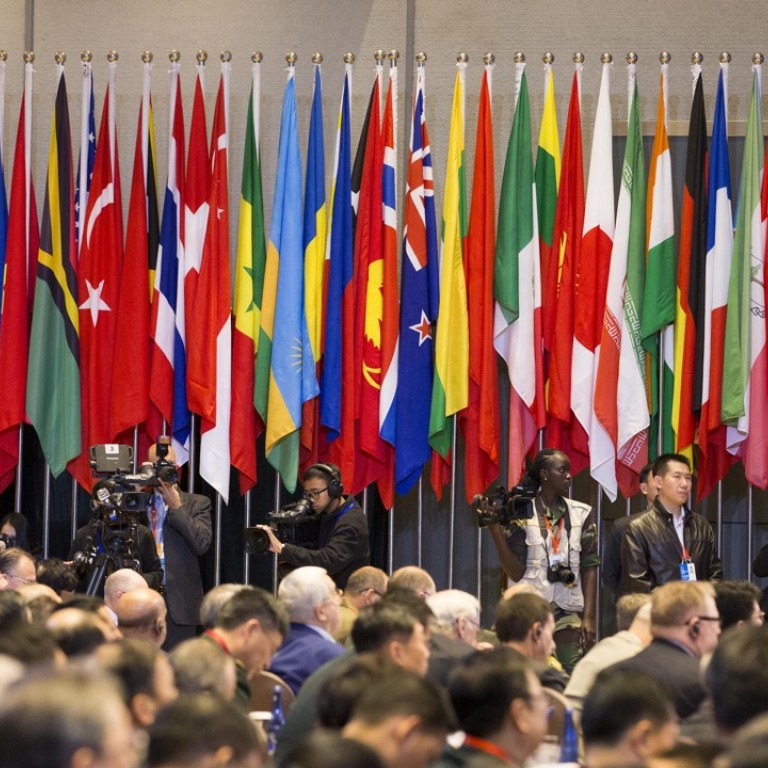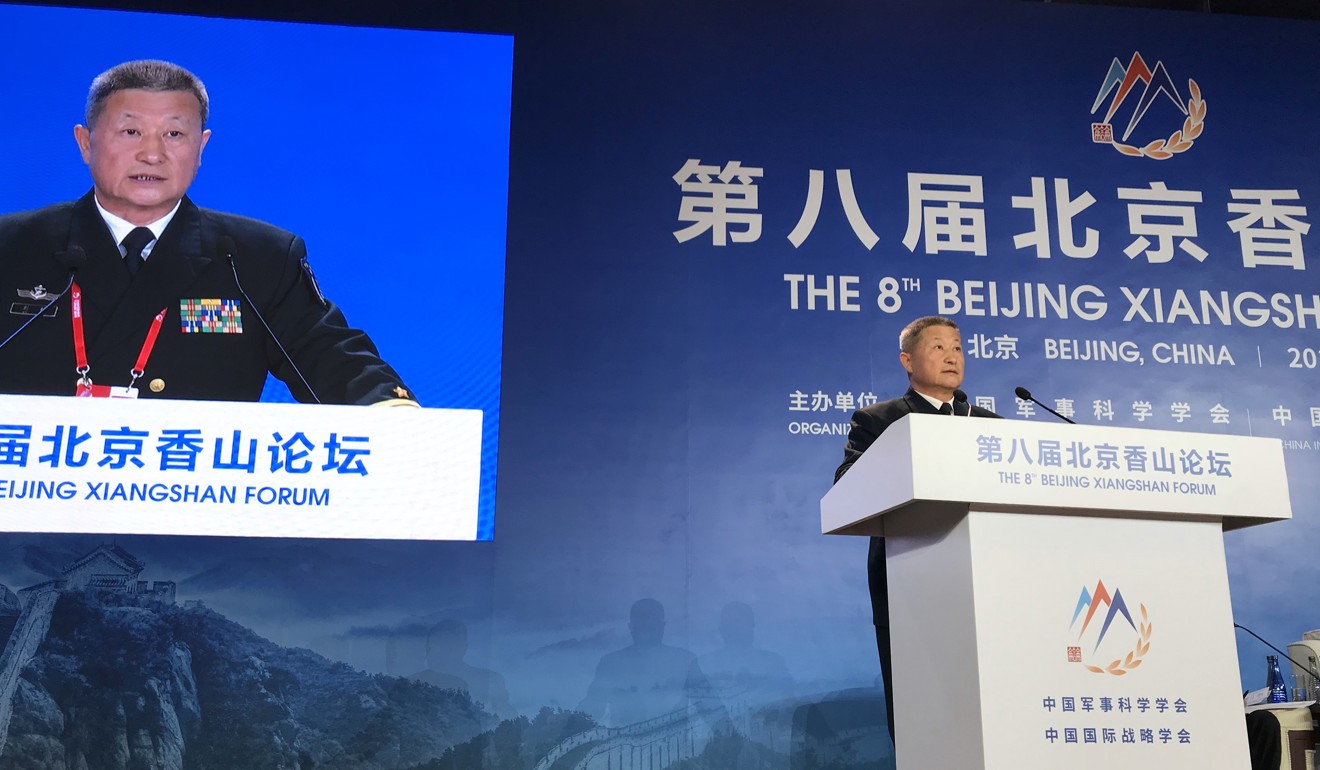
Military dialogue ‘best way’ to ease US-China tensions in South China Sea
- Communication channels remain open despite low point in relations, security forum hears
- ‘Cooperation will benefit both, confrontation will only lead to bad results’
With bilateral ties between China and the US at a historic low point, the two countries’ militaries should step up communication to ease escalating tensions, Chinese military delegates at a Beijing security forum said.
The delegates did not discuss the recent confrontations between Chinese and American navy vessels in the disputed South China Sea but stressed the importance of stabilising ties between the two militaries during a maritime security panel discussion at the two-day forum.
A source close to the organisers of the Xiangshan Forum said Beijing wanted to create a better atmosphere for Sino-US relations ahead of a possible meeting between Chinese President Xi Jinping and his US counterpart President Donald Trump at the G20 summit in Argentina next month.
The likelihood of talks between the two leaders is still in question.

Vice Admiral Liu Yi, deputy commander of the Chinese navy, said defence ministers of the two countries had reached a consensus to enhance communication in June, at the Shangri-La Dialogue in Singapore, another regional security forum.
“The two defence chiefs jointly expressed a desire to strengthen the relationship and cooperation between the two militaries as a ‘stabiliser’ for bilateral relations,” he told the Beijing forum.
“Of course, we must also carefully observe and make all kinds of preparations. At present, it is mainly to communicate and coordinate, promote cooperation and maintain regional stability.”
China has not sent its defence minister to the Singapore dialogue since 2011, when General Liang Guanglie attended. Its delegation was led this year and last year by Lieutenant General He Lei, vice-president of the Academy of Military Science (AMS).
At Western-led summit, Chinese find controversy and a clash of cultures
Two retired Chinese major generals from the China Institute of International Strategic Studies (CIISS), which organised the Beijing forum with the AMS, said communication channels between the Chinese military and its American counterpart had remained open even though the atmosphere between the two countries was not good.
“Chinese and American militaries have a consensus: Cooperation will benefit both, but confrontation will only lead to bad results. [China] still hopes to further communicate with the US,” said CIISS vice-chairman Xu Nanfeng, a former defence attaché with the Chinese embassy in Washington.
Another CIISS vice-chairman Gong Xianfu said China had hoped to create an anticipatory mechanism for both militaries to better manage their encounters at sea and in the air.
Tensions over the South China Sea between China and the US are on the rise. Last month, US navy destroyer USS Decatur had to manoeuvre to avoid a collision when a Chinese warship came within 45 yards of its bow close to the Gaven Reef.
Cesar B Yano, a defence operations undersecretary for the Philippines, told the Xiangshan Forum that the South China Sea remained one of the most complex maritime issues in the region.
He said all countries should try to abide by the maritime code of conduct and maintain a dialogue through Asean, the Association of Southeast Asian Nations.
“There is apprehension and increased tension in the region … there is really a need for countries, whether you’re in the region or other major powers or partners, to continue talking and discussing,” he said.

